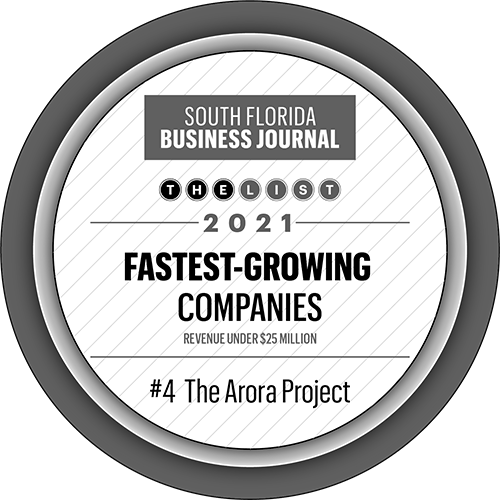Traditional startup fundraising via venture capital and bank financing overwhelmingly benefits white startup founders at the expense of minority founders. Equity crowdfunding has the promise and potential to increase access to capital for diverse entrepreneurs in many unprecedented ways.

The Startup Ecosystem is Crippled by Bias
In a Medium post published in October 2020, Vern Howard shared his experiences pitching his startup, Hallo, to venture capitalists as a Black man. Hallo did succeed in raising $2 million in a seed round…but not without discrimination and humiliation. At one pitch, Howard was mistaken for a delivery man. In another, one investor told him to please not “run off to Cabo now!” after agreeing to invest.
Black people make up 13% of the population in the US, and Black Americans have the highest rate of entrepreneurship. Black women are the fastest group of business owners in 20 years. So why do Black entrepreneurs receive less than 1% of traditional venture capital?
Well-intentioned individual VCs may express a commitment to diverse investing, but the very structure of venture capital is entrenched in institutional bias.
Elizabeth Yin of the Hustle Fund explains this vividly in a blog post from the spring of 2020:
“A power construct that should worry you, as an entrepreneur, that most people don’t know about: VC funds are only allowed to have 99 investors. There are a couple of exceptions.
Let’s do the math on that. If you want to raise a $100 million fund, that means that your average check size from an investor in your fund needs to be over $1 million.
The number of people or groups who can easily write a $1 million+ investment check is very few. Power in the investing world is concentrated in the hands of just a few people and that money generally continues to support existing funds and the founders they support who are typically White, Male, graduated from an Ivy League or MIT/Stanford, and worked at a top notch tech company like Facebook or Google. This is why you don’t see new money or new ideas go into investing. Literally, change is prevented by the laws that are in place.“
Access to Capital is a Lingering Challenge for Minority Founders
The other traditional option for capital—bank loans—is fraught with the same kinds of obstacles for Black and POC entrepreneurs. Approval rates for business loans are much, much lower, and when Black and POC founders are granted credit, it’s for less capital at higher interest rates.
This inability to access credit has a cumulative devastating effect on minority-owned businesses. After all, it takes money to make money, and capital is critically important for a business to establish and expand. In 2014, 28% of Black entrepreneurs reported the lack of access to capital directly impacted profits, compared to 10% of white entrepreneurs.
Additionally, startup entrepreneurs are expected to raise initial funding from friends and family—an expectation itself born out of bias: white Americans have an average net worth of $144,000, compared to Black Americans’ average net worth of $11,000. Needless to say, this lack of generational wealth means most friends and family members can’t invest, rendering early capital even further out of reach for Black founders.
Equity Crowdfunding Could Level the Playing Field
Equity crowdfunding (ECF) is a relatively new form of fundraising that allows a business to raise funds from anyone willing to invest (as opposed to only accredited investors), often with amounts as low as $100—in exchange for a share in the business.
One of the most promising aspects of equity crowdfunding is its potential for positive social impact and a more equitable distribution of capital for women and POC entrepreneurs. By removing the typically all-white, all-wealthy, all-male gatekeepers of venture capital and financing, equity crowdfunding becomes anyone’s game. With a leveled playing field, anyone can raise startup funds, and anyone can invest—and profit from—that startup’s success.
Equity Crowdfunding Reinvests in the Black Community
Since the second part of the US JOBS Act legalized crowdfunding in 2016, several niched equity crowdfunding platforms have sprung up, including the 10K Project, a Black-owned ECF platform for Black entrepreneurs and investors. 10K is a reference to the group’s goal for 10,000 members to invest $100 each, for a total $1M direct reinvestment in the Black community. As the 10K website describes it:
“One of the most underestimated investment opportunities is the Black business owner. In traditional markets, most of us are unable to invest in early-stage companies like wealthy families do. They buy shares early in a business and participate in “hockey stick” stock price increases if and when the company gains traction. As early investors, they make the majority of the investment returns. We can do the same.”
Other equity crowdfunding platforms report fundraising for African American-led businesses at levels proportional to their US population (about 13%, according to Census data). Republic reports that in its first two years of operation, 25% of funds raised went to companies founded by POC. 11% of Honeycomb’s campaigns are Black-led, 12% of Seedinvest’s, and 8% of Wefunder.
Equity crowdfunding is harnessing the power of capitalism for good: accessible fundraising and investment opportunities for eventual redistribution of community wealth and prosperity. It’s high-time POC entrepreneurs gain access to critically important early capital, and equity crowdfunding is making it happen.
Changing the World With Equity Crowdfunding
At Arora Project, we’re passionate about the potential of equity crowdfunding as a people-powered solution to humanity’s greatest needs, like climate action and uplifting women entrepreneurs. And whatever project you wake up excited to pursue each day, we’re as excited to support you as your equity crowdfunding marketing expert.
Did you know Arora Project is Wefunder’s #1 marketing partner with a 100% success rate in equity crowdfunding campaigns? Let’s change the world together.








